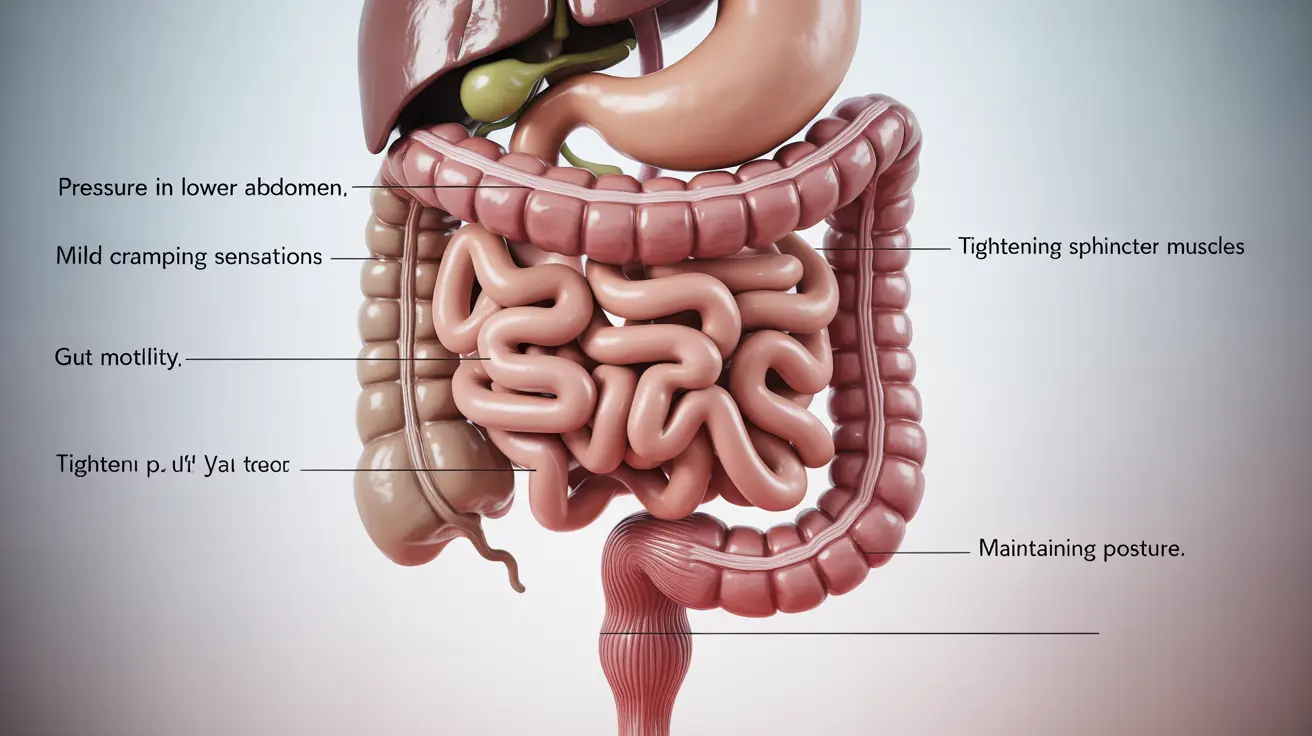Everyone has experienced that uncomfortable moment when nature calls at an inconvenient time. Understanding how to safely manage bowel urgency when facilities aren't immediately accessible is an important life skill that can help maintain both comfort and dignity in challenging situations.
While it's generally best not to delay bowel movements when possible, there are several safe, temporary strategies you can employ when necessary. This article will explore evidence-based techniques for managing urgent bowel needs, along with important health considerations to keep in mind.
Understanding the Body's Natural Signals
When the bowels are ready for a movement, the body sends clear signals through the nervous system. These signals typically include:
- Pressure in the lower abdomen
- Mild cramping sensations
- A feeling of fullness in the rectum
- Increased gut motility
Recognizing these signals early can help you better manage urgent situations and find appropriate facilities before the need becomes severe.
Safe Short-Term Management Techniques
Physical Strategies
When you need to temporarily hold a bowel movement, certain physical techniques can help:
- Tightening the external anal sphincter muscles
- Standing or walking instead of sitting
- Keeping the body upright and straight
- Taking slow, deep breaths to remain calm
- Avoiding sudden movements or bending
Mental Focus Techniques
The mind-body connection plays a crucial role in managing bowel urgency. These mental strategies can help:
- Practice mindful breathing
- Focus on other activities or conversations
- Stay calm to prevent anxiety from worsening the urgency
- Use positive self-talk and reassurance
Dietary Considerations for Prevention
If you know you'll be in situations where bathroom access might be limited, consider these dietary strategies:
- Avoid large meals before important events
- Limit caffeine consumption
- Reduce intake of known digestive stimulants
- Stay moderately hydrated without overdrinking
- Choose foods that are less likely to cause urgent bowel movements
Health Considerations and Warnings
While occasionally holding a bowel movement is generally safe, making it a habit can lead to health issues. Be aware of these important factors:
- Don't hold for extended periods
- Listen to your body's signals
- Maintain regular bathroom habits when possible
- Watch for signs of digestive distress
- Seek medical attention if control issues persist
When to Seek Medical Help
Consult a healthcare provider if you experience:
- Frequent urgent bowel movements
- Loss of bowel control
- Chronic constipation
- Unexplained changes in bowel habits
- Persistent abdominal pain
Frequently Asked Questions
What are safe techniques to hold in poop when there is no bathroom nearby? Safe techniques include tightening the external anal sphincter muscles, maintaining an upright posture, taking slow deep breaths, and using distraction techniques. Avoid sudden movements and stay as calm as possible.
Which body positions help reduce the urge to poop when you need to wait? Standing straight, walking slowly, and maintaining an upright posture can help reduce urgency. Avoid sitting, squatting, or bending over, as these positions can increase pressure on the bowels.
What foods and drinks should I avoid if I need to hold in poop for a short time? Avoid caffeine, large meals, spicy foods, and known digestive stimulants. Also limit intake of fiber-rich foods and stay moderately hydrated without drinking excessive amounts of fluid.
Can frequently holding in poop cause constipation or other health problems? Yes, regularly holding in bowel movements can lead to constipation, weakened pelvic floor muscles, and potential nerve damage. It's important to maintain regular bathroom habits when possible.
When should I see a doctor about difficulty controlling bowel movements or holding in poop? Seek medical attention if you experience frequent urgent bowel movements, loss of control, chronic constipation, unexplained changes in bowel habits, or persistent abdominal pain.




